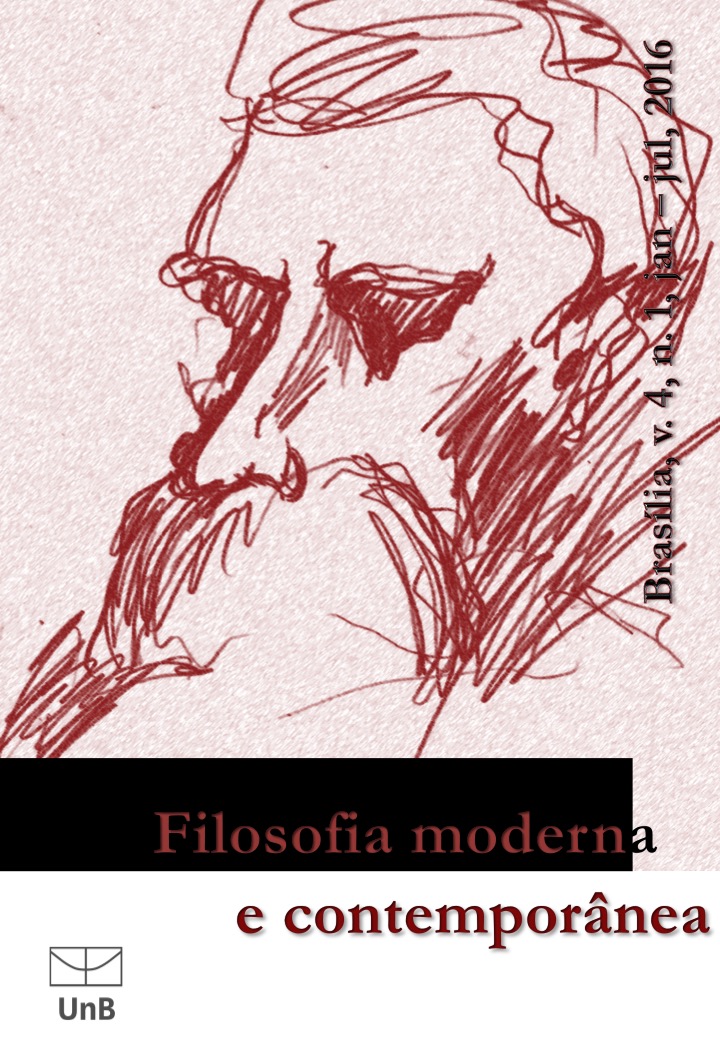Qual é a realidade? Significado, Socialidade e Moral
DOI:
https://doi.org/10.26512/rfmc.v4i1.12533Palavras-chave:
Ética, Utilidade social, Prática moralResumo
O artigo aborda a interação entre ética e ontologia, nomeadamente em matéria de ética e ontologia sociais. Ao apresentar alguns pressupostos iniciais, que se relacionam com Kant, Popper e Searle (entre outros), o trabalho investiga o tema da realidade como uma atividade de significado humano. De acordo com a perspectiva da ontologia social, o artigo tem por hipótese a existência de um conjunto de objetos, cuja realidade depende do par de critérios: interação e sociabilidade. Tendo em conta estes dois critérios, o artigo analisa a relação entre ontologia social e ética, com o objetivo de mostrar se a moral pode ser concebida como uma produção humana e, portanto, como uma prática moral. Se este for o caso, então a ética não tem a ver com a verdade, mas com outro conteúdo. O artigo procura delinear um critério moral baseada na utilidade social, de acordo com uma tradição filosófica específica que segue as teorias de Darwin, passando por Rée, até o pragmatismo de Dewey. O objetivo do texto é delinear a possibilidade de uma nova abordagem para a ética como sistema de normas de avaliação, passando por uma nova definição da realidade, conectando verdade a utilidade, e considerando o papel desempenhado pelo acordo social, o que torna a ética uma questão das normas.
Downloads
Referências
ANDERS, G., Die Antiquiertheit des Menschen. Band I: Über die Seele im Zeitalter der zweiten industriellen Revolution. München: Beck, 2002.
ARENDT, H., The Life of the Mind.Boston: Houghton Mifflin Harcourt, 1981.
CHURCHLAND, P., Braintrust: What Neuroscience Tells Us about Morality. Princeton: Princeton University Press.
DEBORD, G., La société du spectacle. Paris: Champ Libre, 1971.
DEWEY, J., Human Nature and Conduct. In The Middle Works. Volume 4. Carbondale: SIUP, 1983.
DEWEY, J., Logic: The Theory of Inquiry. In The Later Works. Vo l u m e 1 2 . Carbondale: SIUP, 1986.
DUBAR, R., La socialisation: Construction des identités sociales et professionnelles, Paris: Armand Colin, 1997.
HEIDEGGER, M., Was ist Metaphysik. Frankfurt: Klostermann, 1998.
INGLEHART, R., Modernization and Postmodernization: Cultural, Economic, and Political Change in 43 Societies. Princeton: Princeton University Press, 1997.
I N G L E H A R T, R . ”“ We l z e l , C . , Modernization, Cultural Change and Democracy: The Human Development Sequence. New York: Cambridg e University Press, 2005..
KANT, I., Kritik der Reiner Vernunft. Riga: Hartknoch, 1781.
MASLOW, A., Motivation and Personality. Upper Saddle River: Pearson, 1997.
MONTESQUIEU, Lettres persanes. Paris: Lefèvre, 1721.
PERCHERON, A., L’univers politique des enfants. Paris: Armand Colin, 1974.
POPPER, K., Knowledge and the Body-mind Problem. London: Routledge., 1994.
RAWLS, J., A Theory of Justice. Cambridge: Harvard University Press, 2009.
Downloads
Publicado
Edição
Seção
Licença
Direitos Autorais para artigos publicados nesta revista são do autor, com direitos da primeira publicação para a revista. Em virtude dos artigos aparecerem nesta revista de acesso público, os artigos são de uso gratuito, com atribuições próprias, em aplicações educacionais e não-comerciais.


